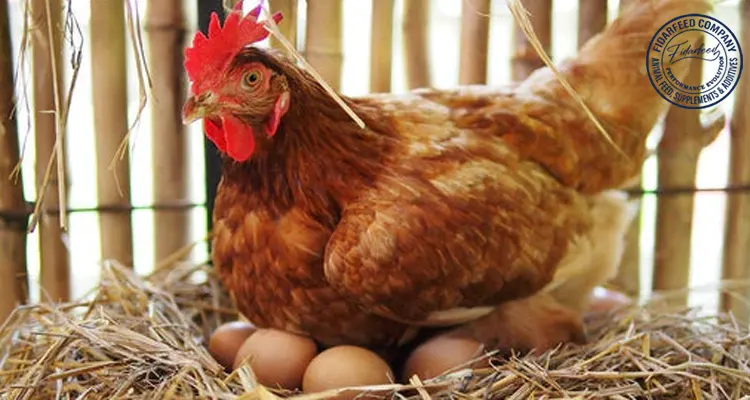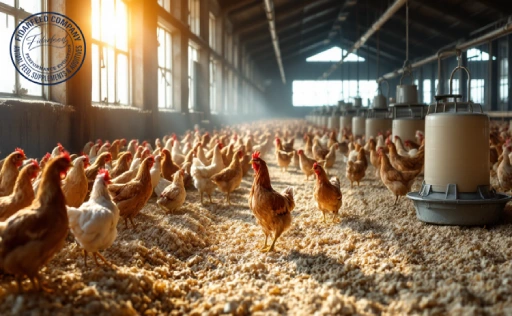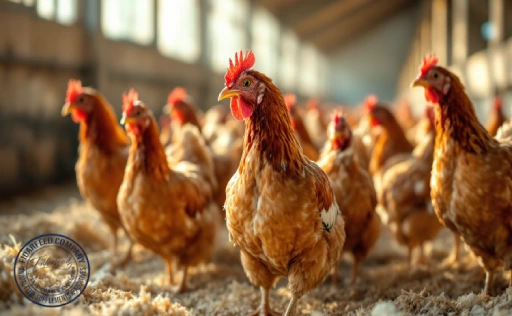Egg production is at the heart of every laying hen operation. Whether you’re an experienced poultry farmer or just starting, maximizing egg yield while ensuring the health of your flock is a top priority. Many factors influence egg production, including nutrition, environment, and genetics. But one often overlooked secret to improving egg yield naturally is probiotics. These beneficial microorganisms can transform the way hens digest food, absorb nutrients, and fight off diseases, leading to healthier birds and more eggs. Let’s explore how probiotics can boost egg production and why they are becoming a must-have in modern poultry farming.
What Are Probiotics and Why Do They Matter for Laying Hens?
Probiotics are live microorganisms, primarily bacteria and yeasts, that promote a healthy gut microbiome. Just as humans rely on probiotics for better digestion and immunity, poultry benefits from these “good bacteria” in a similar way.
Learn more about: Probiotic Supplement for Poultry
When incorporated into a hen’s diet, probiotics support intestinal health, enhance nutrient absorption, and create a balanced digestive system. This leads to stronger, more productive birds that lay eggs more consistently.
How Probiotics Improve Egg Production in Laying Hens
A well-balanced digestive system plays a critical role in egg production. Probiotics aid digestion by breaking down food efficiently, allowing hens to extract the maximum amount of nutrients from their feed.
Learn more about: The Chicken Egg Production Cycle: A Comprehensive Overview
When hens receive proper nutrition, they lay more eggs with improved shell strength and yolk quality. Additionally, probiotics help maintain gut pH levels, reducing harmful bacteria and lowering the risk of digestive issues like diarrhea and infections, which can disrupt egg production.
The Science Behind Probiotics: Beneficial Bacteria at Work
Scientific studies have shown that probiotics enhance gut flora by increasing beneficial bacteria such as Lactobacillus, Bacillus, and Enterococcus. These microbes outcompete harmful bacteria like Salmonella and E. coli, preventing infections and improving overall flock health.
Learn more about: Decreased Egg Production in Laying Hens: Common Diseases in Chickens to Watch
Moreover, probiotics contribute to better feed conversion rates, meaning hens require less feed to produce the same or even higher quantities of eggs. This not only benefits productivity but also reduces feed costs—an essential factor for poultry farmers.
Key Benefits of Probiotics for Laying Hens
Enhanced Gut Health: A stronger digestive system means better nutrient absorption, leading to healthier and more productive hens.
Increased Egg Quality: Studies suggest that probiotic-fed hens produce eggs with thicker shells, more vibrant yolks, and improved overall quality.
Learn more about: Boost Your Egg Production with Classica Layer Chickens
Stronger Immune System: Probiotics reduce the need for antibiotics by naturally enhancing the immune system, making hens more resistant to diseases.
Better Feed Efficiency: Improved digestion leads to better feed conversion, reducing waste and optimizing costs.
Stress and Disease Resistance: Probiotics help hens handle stress better, whether from environmental changes or transportation, reducing production dips.
Choosing the Right Probiotic Supplements for Maximum Egg Production
With numerous probiotic products available, selecting the right one can be overwhelming. Look for supplements that contain multi-strain probiotics like Lactobacillus acidophilus, Bacillus subtilis, and Enterococcus faecium, as different strains provide different benefits.
Learn more about: The Egg Production Cycle: From Laying to Market
Opt for heat-stable probiotics to ensure they survive feed processing and storage conditions. Consulting with a poultry nutritionist or veterinarian can also help determine the best probiotic blend for your specific flock.
Natural Sources of Probiotics for Poultry Farms
While commercial probiotic supplements are highly effective, some natural sources can also support gut health:
Fermented Feed: Soaking grains or pellets in water for 24 hours encourages the growth of beneficial bacteria.
Apple Cider Vinegar: A natural probiotic booster that helps maintain gut balance.
Learn more about: Boosting Broiler Breeder Egg Production: A Comprehensive Lighting Guide
Yogurt or Kefir: Contains live cultures that support digestion and immunity.
Raw Milk: When used in moderation, it can introduce beneficial microbes into a hen’s diet.
How to Introduce Probiotics into Your Flock’s Diet
Incorporating probiotics is simple and can be done through:
- Feed Additives: Many poultry feed brands now include probiotics in their formulations.
- Drinking Water Supplements: Liquid probiotic solutions can be added to water for easy consumption.
- Homemade Fermented Feed: Farmers who prefer natural methods can prepare their own probiotic-rich feed.
Start with small doses and observe your flock’s response. Gradually increasing the amount ensures a smooth transition without digestive disturbances.
Common Misconceptions About Probiotics in Poultry Farming
- Probiotics Replace the Need for a Balanced Diet: While probiotics support digestion, they cannot compensate for poor-quality feed.
- All Probiotics Are the Same: Different strains serve different purposes; some target digestion, while others boost immunity.
- Probiotics Work Instantly: It takes time for beneficial bacteria to colonize the gut and show visible improvements in egg production.
Learn more about: How To Start Egg Laying Chicken Business: Your First Steps
Life Success Stories: Probiotics’ Effect on Egg Yield
Many poultry farmers have reported remarkable improvements after incorporating probiotics. For example, a commercial egg producer observed an increase in egg yield and a reduction in feed waste after introducing a probiotic supplement.
Learn more about: How Stocking Density Affects Chicken Health and Egg Laying
Similarly, a small-scale farmer in the United States noticed that his hens produced eggs with stronger shells and deeper-colored yolks within just a few weeks of using probiotics. These real-world examples highlight the transformative potential of probiotics in egg production.
Final Thoughts: Are Probiotics the Key to Higher Egg Production?
The evidence is clear; probiotics play a vital role in improving egg production naturally. By enhancing digestion, strengthening immunity, and promoting overall hen health, probiotics help maximize egg yield while reducing dependency on antibiotics and synthetic additives. Whether you’re managing a large commercial farm or a small backyard flock, adding probiotics to your hens’ diet can lead to healthier birds and better profits.
Have you used probiotics in your poultry farming? Share your experiences, ask questions, or leave a comment below—we’d love to hear from you!








